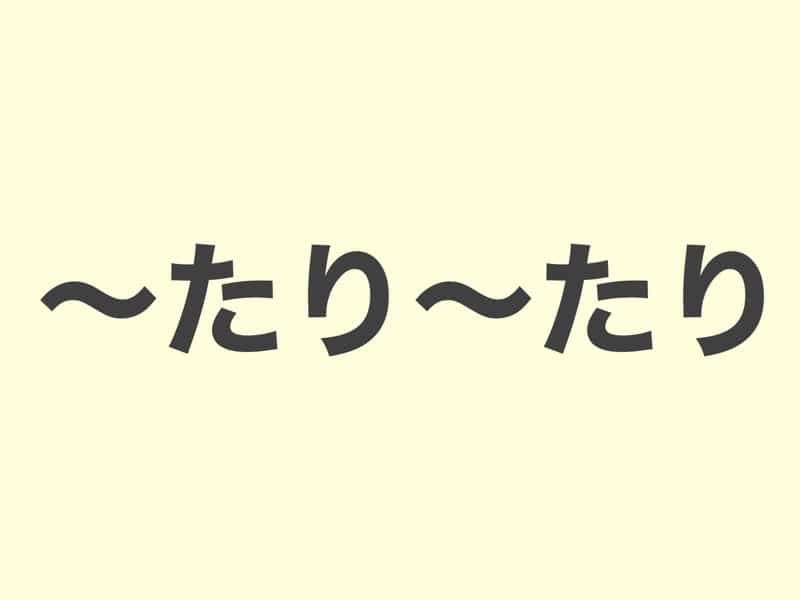説明 (Explanation)
文法(Grammar):た形+り〜た形+り (~ta from+ri, ~ta from+ri)
意味 (Meaning):文をつなぐとき使います。
英語(English):The expression 〜たり〜たり (tari tari) is used to connect sentences or actions.
例文 (Examples)
- 今日は、掃除したり、洗濯したりしました。
- 週末、映画を見たり、買い物したりします。
- 年末年始は、家族と食事したり、友達とパーティーをしたりしました。
- 日本で買い物したり、日本料理を食べたりしたいです。
ひらなが (Hiragana)
- きょうは、そうじしたり、せんたくしたりしました。
- しゅうまつ、えいがをみたり、かいものしたりします。
- ねんまつねんしは、かぞくとしょくじしたり、ともだちとパーティーをしたりしました。
- にほんでかいものしたり、にほんりょうりをたべたりしたいです。
Romaji
- kyou wa, souji shitari, sentaku shitari shimashita.
- shuumatsu, eiga o mitari, kaimono shitari shimasu.
- nenmatsu nenshi wa, kazoku to shokuji shitari, tomodachi to paatii o shitari shimashita.
- nihon de kaimono shitari, nihon ryouri o tabetari shitai desu.
英語翻訳 (English Translation)
- Today, I cleaned and did laundry.
- This weekend, I will watch a movie and go shopping.
- During the New Year’s holiday, I had a meal with my family and had a party with my friends.
- I want to shop in Japan and eat Japanese food.





コメント